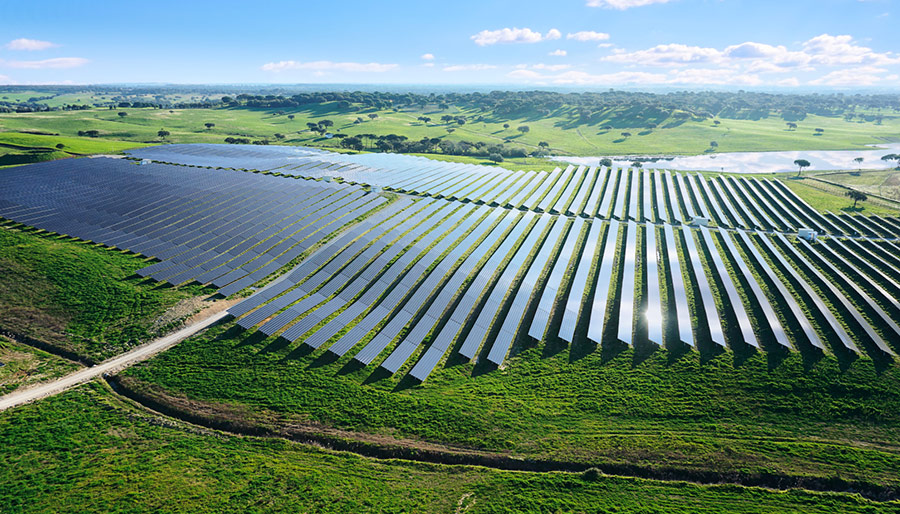AC Energy Corporation (ACEN), a subsidiary of the Filipino conglomerate Ayala Corporation, has achieved board approval to increase its ownership in the joint venture UPC\AC Renewables Australia to 100%, and with it fully acquire a large pipeline of Australian renewable energy projects that includes Australia’s largest solar farm to date.
The acquisition for a quoted US$243.3 million (around AU$326 million), is subject to regulatory approvals, including the non-objection of the Foreign Investment Review Board of Australia, but if successful will mark “a strategic pivot for ACEN, as the company embarks on its first wholly owned development and operations platform outside of the Philippines”, said ACEN President and CEO Eric Francia in a statement last week.
He added, “We are excited to scale up investment in our Australia platform, as we expect the country to accelerate its energy transition.”
The announced UPC\AC Renewables pipeline in Australia so far includes the above mentioned 720 MW New England Solar Farm near Uralla in New South Wales, the first 400 MW of which is expected to start commissioning next year.
Also in the portfolio are the 400 MW Stubbo Solar Farm and associated 200 MW/200 MWh battery energy storage project, which achieved New South Wales Department of Planning and Environment approval in July this year and are expected to commence construction in 2022 ; a share in the Rise Renewables 250 MW Baroota Pumped Hydro Project in South Australia, which is seeking support from Traditional Owners, the Nukunu Wapma Thura Corporation, before progressing to a final investment decision; the proposed 600 MW Birriwa solar farm and battery project near Dunedoo in New South Wales, which is currently at the scoping stage; and 160 MW Axedale Solar Farm in Central Victoria, which may also come to include a battery energy storage system (BESS).
Patrice Clausse, Chief Operating Officer of AC Energy International, said ACEN will fully integrate the Australian operations into ACEN, including the platform’s “highly capable team”.
UPC\AC Renewables was formed as a joint venture in 2018, and Brian Caffyn, CEO and Founder of the international company UPC Renewables says, “The joint initiatives we have established in the renewable energy sector are a testament to what the teams can bring together and take ACEN to the next stage of growth.”
Through ACEN, Ayala Corp aims to become the largest listed renewable platform in Southeast Asia, and Forbes magazine reports the company has raised US$1 billion so far this year from a combination of initiatives, including green bonds, a rights issue, and a private placement to Singapore sovereign wealth fund GIC, to support its expansion plans.
UPC Renewables itself is headquartered in Boulder, Colorado in the US. With completed early projects in the US, Canada and Europe, it more recently turned its focus to the Asia-Pacific region where it has a 1 GW portfolio of operating renewable energy assets and 10 GW of projects in the pipeline.
UAC Energy, jointly owned by ACEN and UPC\AC Renewables, was last year involved in a takeover battle for Infigen Energy, Australia’s then largest ASX-listed renewable energy generator, developer and retailer, which it lost to Spanish energy giant Iberdrola.
Separately to the ACEN acquisition, UPC Renewables and its Australian CEO Anton Rohner have agreed to buy up to 942 million AC Energy shares for a total consideration of US $210 million, which will give them a stake of around 2.5% in AC Energy.
This content is protected by copyright and may not be reused. If you want to cooperate with us and would like to reuse some of our content, please contact: editors@pv-magazine.com.









2 comments
By submitting this form you agree to pv magazine using your data for the purposes of publishing your comment.
Your personal data will only be disclosed or otherwise transmitted to third parties for the purposes of spam filtering or if this is necessary for technical maintenance of the website. Any other transfer to third parties will not take place unless this is justified on the basis of applicable data protection regulations or if pv magazine is legally obliged to do so.
You may revoke this consent at any time with effect for the future, in which case your personal data will be deleted immediately. Otherwise, your data will be deleted if pv magazine has processed your request or the purpose of data storage is fulfilled.
Further information on data privacy can be found in our Data Protection Policy.